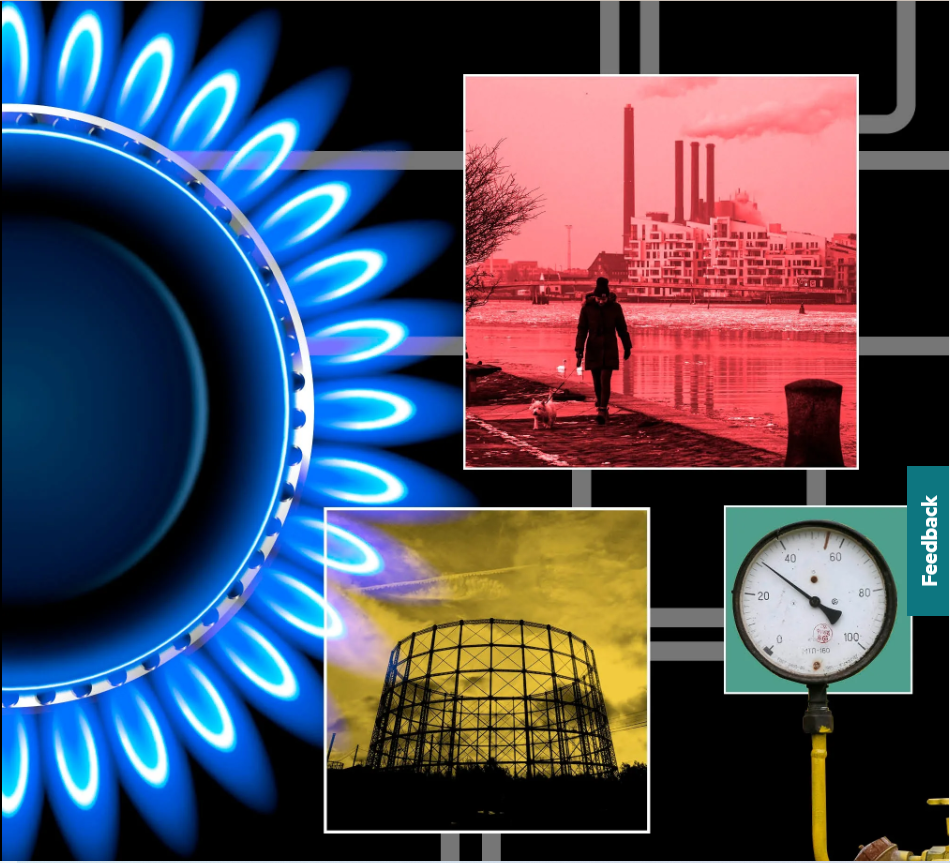ABN Amro analyserer den virkning, som de nyligt vedtagne sanktioner vil få på Europa. Sanktionerne er delt i to grupper – finans og energi. Sanktioner tager selvsagt sigte på at ramme russere, men de rammer også afsenderne. Foreløbig er sanktionerne begrænsede. Men hvis russerne forbydes at bruge betalingssystemet SWIFT, vil det få alvorlige konsekvenser for europæiske banker, der i givet fald ikke kan få tilbagebetaling af deres lån til Rusland. Men den største virkning vurderes at komme på energiområdet, måske ikke med reduktion af leverancer af gas og olie, men på prisen. Der kan også blive en stigning i metalpriser, der især er vigtige i bilindustrien. Men stigende gaspriser vil direkte ramme forbrugerne. Den tidligere præsident, Dmitrij Medvedev, har truet med priser på 2000 dollar pr. 1000 kubikmeter gas, og det svarer til den højeste gaspris i december. I så fald bliver gasprisen flere gange dyrere end normalt.
Russia-Ukraine escalation: Our initial take

The EU and UK announced sanctions proposals in response to Russia’s recognition of Donetsk and Luhansk, two self-proclaimed separatist regions in the east of Ukraine. It is early days, and it remains to be seen how far US and European authorities will ultimately go in imposing sanctions, and what they will target. We continue to think that the primary macro impact would be via energy.
First sanctions announced in response to Russia-Ukraine escalation
The EU and UK announced sanctions proposals yesterday afternoon in response to Russia’s recognition of Donetsk and Luhansk. President Putin also ordered troops into these regions for ‘peacekeeping’ purposes. So far, sanctions proposals involve the targeting of Russian banks, high net worth individuals, and trade sanctions on the breakaway regions of Ukraine. Germany has also halted certification of the NordStream 2 gas pipeline.
While details are still lacking, sanctions are unlikely to go as far, for instance, as blocking Russia’s use of the SWIFT payments system (this could hamper billions in loan repayments to European lenders). We also do not foresee aggressive Russian countermeasures, such as restrictions on gas exports to Europe. Meanwhile, western military involvement is extremely unlikely, and will probably remain limited to supplying arms to Ukraine.
Too early to say just how far sanctions (and the conflict) will escalate
Still, it is early days, and it remains to be seen how far US and European authorities will ultimately go in imposing sanctions, and what they will target. Measures will likely seek to strike a balance between hitting Russia hard, but not so hard that it triggers aggressive Russian counter-measures. In that regard, there is a big difference between sanctions aimed at financial systems, and those that target oil and gas suppliers and maintenance.
Other alternatives are sanctions against the deliveries of chips or other crucial components used by the Russian IT and military. Since it is not yet clear what the sanctions will be, and how Russia would react, it would be speculating at this stage as to what the long term implications might be.
Primary macro impact would still be via energy
We continue to think the main channel through which the eurozone and UK economies could be impacted is via gas supplies and the risk of further gas price spikes, with the export exposure of European economies to Russia being relatively limited (EU exports to Russia are just 4% of the total, with those for the eurozone even lower at 3%).
Russia is also a major supplier of other commodities – not just oil and gas, but also base metals, precious metals (eg. Russia supplies c.40% of the world’s palladium, used for car catalytic converters), steel, fertilizers and cereals.
The escalation in Ukraine has therefore pushed prices for these commodities higher, and the risk is that prices continue to move higher on fears that counter-sanctions could actually hurt the physical deliveries of these commodities.
However, the impact of higher prices of these other commodities would likely be much smaller than that of further energy price spikes. In our report of 27 January, we outlined several scenarios for energy markets, and while the probabilities of these have shifted somewhat, we view it as too soon to alter our base case assumptions just yet.
.











